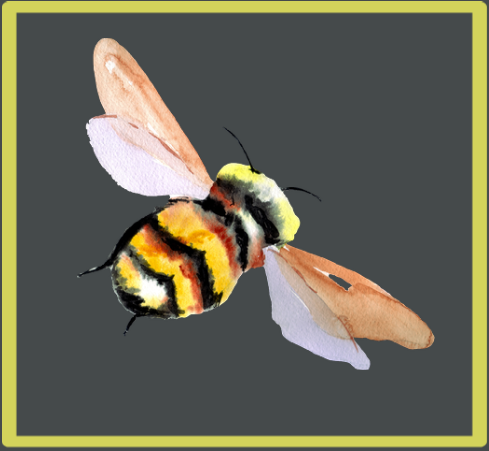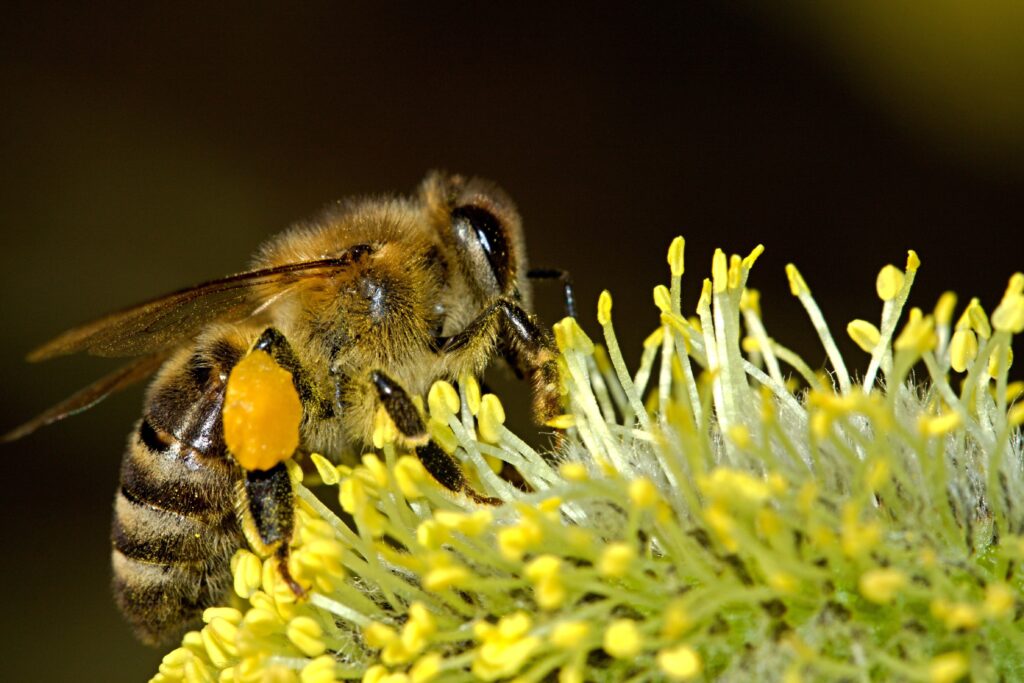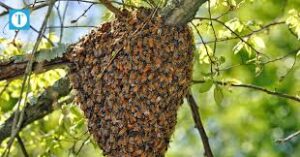As indicated in last month’s report I attended a presentation of Junior Beekeeping Certificates at St Catherines Primary School , Launceston on the 27th September (see photo). A couple of years ago they established a Bee Club which is now thriving and 4 of the year 6 pupils successfully obtained their Junior Beekeeping Certificates . The Bee Club teachers are: Jo Parish, Heather Bishop and Beth Woolley. The pupils that were awarded the certificates are: Hannah, Leah, George and Louis.
They all were members of Bee Club in Year 5 and Year 6. They helped to complete a honey extraction in July 2023. Unfortunately they suffered the loss of their colonies over last winter but this was used to expand their research and knowledge into why this happens. They attended for the full school year, dedicating their winter months to classroom based theory work, making presentation boards, featuring on BBC Radio Cornwall, speaking at an Outdoor Learning Conference to teaching professionals about their Bee Club experience, and trying to share the word and encourage others to follow in their footsteps.
This year they have 21 pupils in Bee Club, 10 of whom are returning members in Year 6, after joining in Year 5, and therefore will have the opportunity to take the Junior Beekeepers Examination next Spring/Summer if they wish to.
Jo ,Heather and Beth are rightly proud of the fact that their pupils have enjoyed their beekeeping experience and now have a thorough understanding of the importance of bees. These 4 pupils have now left to go onto Secondary school and we are actively looking at how we can maintain their interest so that they can continue as Junior beekeepers within our Group. We really need to inspire the next generation of beekeepers!
17 members attended our first inside meeting of the Autumn/Winter season on the 18th October 2024. John Hunt who had previously presented on the work of the Cornwall Wildlife Trust talked to us about the stingless honeybees of Costa Rica. Through a friend John and his wife have become heavily involved in a rewilding back to jungle project on the South West Costa Rican shore. There are around 500 various stingless bees (meliponines) throughout the Tropical belt of the world. In the wild they are all under threat principally due to habitat loss and insecticide use. As part of this rewilding project John has established 10 hives. The bees are much smaller than our own honeybee so the hives are about a third the size of ours . They have many of the same behaviours as our own honey bees but the differences are fascinating. They develop a fourth type of worker bee called a Soldier bee. Fed slightly differently they grow larger than the standard worker bee and as the name implies become the main guard bees at the entrance to the nest. Instead of stinging they and the standard worker bite in defence of the nest. Once they bite they rarely let go so it is often terminal. They propagate by swarming but the queen is incapable of flight so does not leave the home hive. Instead workers scout a suitable location and then prepare it . Once ready a virgin queen is produced and she flies to the new nest, mates and starts laying eggs. The traditional Costa Rican way of extracting honey is pretty brutal with a high mortality rate so John is currently experimenting with an extraction method that involves sucking the honey from the cells using a pipette type tool. As you might imagine the quantity of honey produced is much less and the value of the honey which is prized particularly for medicinal purposes is much higher. If you look on the internet a 250g jar of Australian stingless bee honey sells for around £50. John touched on a couple of other stingless bees that are endemic to Costa Rica . The Robber stingless bee as the name implies is bad news for his Apiary as it survives by devising a method that allows it to enter his hives and steal the honey… thankfully as yet there are none in that part of Costa Rica Even more fascinating is the Vulture stingless bee. This has enlarged mandibles which allows it to feed on carrion and only carrion…believe it or not it does produce a form of a honey type product that is edible! A fascinating talk for all that attended.
Our future programme is:
15 11 24 Inside Launceston Group Honey Show competition
11 1 25 Annual Luncheon at the Stumble Inn, Week St Mary
14 2 25 Inside Meet .AGM etc
21 3 25 Inside Meet. Nicholas Bentham Green presents on the Bodmin Moor Cornish black bee project.
25 4 25 Inside Meet. Presentation from Martin Hann and Claire Densley of Buckfast Bees
Paul Burridge
Secretary




